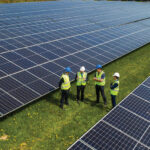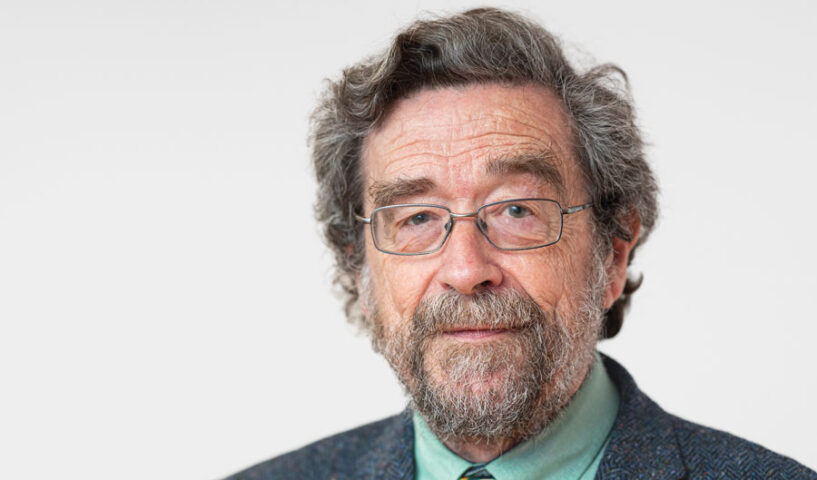
Calor: Driving the energy transition and creating a sustainable future
4th October 2024
Solar power: An unexpected champion in Ireland’s renewables mix
4th October 2024Challenges to accelerating the energy transition

John FitzGerald, former Chairman of the Climate Change Advisory Council, outlines the recognised obstacles to progress in the energy transition, over the course of the decade.
Financial
FitzGerald assesses that the financial challenges of the energy transition extend far beyond cost alone. Indicating an understanding that decarbonisation will cost an estimated 2 to 3 per cent of national income, he insists: “The next decade is going to be expensive but the Government is in a strong financial position, so we can afford it and it is doable.
“The true challenge lies in the fact that we cannot just purchase and import the solution. We have to build the infrastructure on an island where people are living. This means we have to stop doing things to make space to decarbonise Ireland, and to provide a secure and green energy system.”
Expanding further, FitzGerald points to Ireland’s economic status as nearing full employment and highlights how this poses a challenge in the form of people and skills availability.
“We are going to have to stop doing some of the things we are doing to free up resources,” he explains. “For example, to retrofit the housing stock and reduce our energy consumption in housing, we will have to build fewer houses because the people who build houses are also the same people required for retrofitting.
“It is about reallocating our scarce labour resources to where they are most needed.”
“We are part of a worldwide surge in technology. Sourcing that technology is a non-trivial task and we need to pay more attention to it.”
Energy
In a similar vein, FitzGerald says that public understanding of the long-term benefits of costs is important. While the development of renewable infrastructure and enabling technology in the next 10 to 15 years will come at a demanding upfront cost, the move away from energy importation offers a long-term future solution and represents an investment for the future.
Planning
Outlining the more particular challenges that might prevent this long-term investment, FitzGerald assesses that, too often, the public good is trumped by individual interests in Ireland. Pointing to the long-term delays in greater electricity interconnection between north and south as a prime example of systematic delay, he says that already challenging circumstances are set to get more complex.
“There is also a challenge in the availability of equipment. There is a desire to build more offshore wind farms, however, almost all of the rigs that plant windmills in the sea are currently in southeast Asia. We are part of a worldwide surge in technology. Sourcing that technology is a non-trivial task and we need to pay more attention to it.”
Describing planning as “the single biggest obstacle to delivering on decarbonising our electricity system”, FitzGerald indicates his concerns about the size and scale of the 800-page Planning and Development Bill 2023 currently being progressed. Suggesting that a document of such size will inevitably contain errors – which could be contested in court – and estimating a four- to five-year bedding-in period, he believes the Bill is not the solution to current planning delays.
“We need to recognise the need for the public good to trump the individual interest. Currently, there are too many options for appeal. You can appeal the planning permission, or you can go to judicial review, or you can do both. That just makes for endless indecision.”
Households
Turning to households, FitzGerald identifies the high costs of retrofitting a house and acknowledges that for individual homes, that cost may never pay back at the current cost of carbon. “The State has got to provide major support and this is one of the areas where there is a substantial cost to the State purse. It reflects that the price of carbon for households is way below the true cost to society.
“Something not a lot of people noticed is that the Government recently dramatically changed the price of carbon to be used in all government decisions on infrastructure. In February 2024, it had been between €60 and €80 per tonne, rising to €300 in 2050. By June 2024, that figure was between €300 and €350, rising to €400 by the end of the decade.”
However, implementing such a carbon tax for household energy would be “politically unacceptable”, but it would unreasonable to expect immediate household change. “We need 50,000 households per year to retrofit for 30 years if we are going to transition. The State is going to have to provide, and is providing support.”
On state responsibility, he says: “The State as a landlord of some 100,000 dwellings has a duty to retrofit those dwellings and this should be a priority. Despite the fact that oil-fuelled households produce far more emissions than gas-fuelled households, there has been no targeting of those oil-fuelled, predominantly rural households. That should be a priority if the Government wants the biggest bang for its buck in terms of reducing emissions quickly.”
Transport
Describing progress on the decarbonisation of transport as “too slow”, FitzGerald points to the benefits of increasing numbers of EVs, enabling infrastructure, and better use of time of day prices, but says there is a need to accelerate public transport investment, especially for cities.
For rural Ireland, FitzGerald raises concerns as to whether local infrastructure and wires currently have the capacity capability to deal with a large and quick uplift of EVs.
BIO
John FitzGerald is one of Ireland’s leading economists. A research affiliate with the Economic and Social Research Institute (ESRI) and an adjunct professor in TCD, he was a member of the Northern Ireland Authority for Energy Regulation from 2003 to 2006 and he was a member of the Government’s Climate Change Advisory Council until earlier this year, having chaired it between 2016 and 2021.
